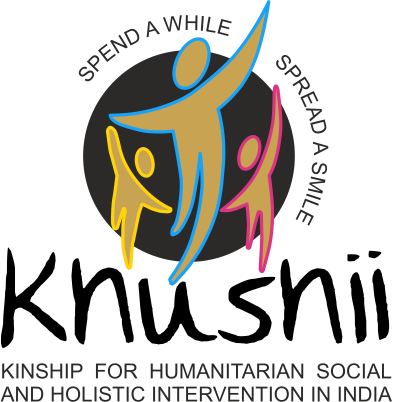A LOST GENERATION & WHAT WE MUST DO
The COVID-19 pandemic has hit different strata
of society in distinctively catastrophic ways. Impaired by disruption of education in their formative years, the
young ones are the most affected by catastrophic impacts affecting an entire generation.
In mid-April 2020, according to UNESCO, 192 countries abruptly shut schools across
the globe to contain the spread of COVID-19. The required
critical step to curb the spread of the virus has cast a dark shadow over the future of millions of children
across the globe.

“463 million children were unable to access remote
learning resources during lockdown”
Source – UNICEF, 2020
While educational institutions and schools have shifted to the online mode, it has been difficult for them to
engage students from the disadvantageous segment of society. Lack of access to resources is accelerating
inequalities and fueling a shadow pandemic.

“Previous school shutdowns demonstrate that children
who are out of school for extended periods, especially girls are less likely to return to
school”
Source – UNICEF, 2020
Children living in the shadow of COVID-19 because of school closures face a heightened risk of domestic violence
and psychosocial issues, sexual and gender-based violence, child marriage and child labour.

COVID-19 has resulted in an increased number of child
marriages and children quitting school to join the labour market
Source – World Bank, 2020
due to the loss of learning opportunities among millions of children in India.Following the social distancing and safety guidelines, India had to close 1.5 million schools, affecting an
estimated 286 million children from pre-primary to secondary grades. The number adds to the 6 million girls and
boys not attending school since pre lockdown.
There is an urgent need to reimagine education
that is effective, equitable and resilient.
KHUSHII, a national level NGO, has been working across the country towards providing unhindered education to its
student beneficiaries through effective and inclusive remote learning systems. In its adopted communities,
KHUSHII is working tirelessly to minimise the loss of learning due to COVID-19 by ensuring that disadvantaged
children are back to school and continue quality learning.
Today, 45,000 students in 24 Govt. schools across ten states in India are part
of the program.
Among the poorest households in India, only 8.9%
have access to the Internet, which is essential for remote learning. To solve the problem for the
underprivileged communities, KHUSHII has, following COVID safety protocols, established Adapt Impact
Community Learning Centres. These centres are digitally enabled safe learning spaces within the
community, equipped with iPads and computers powered by high-speed Internet.
Adapt Impact Centres are already making a
difference amongst our adopted communities in Delhi and Bengaluru. Students from grades 2-8 from the
disadvantaged and economically weaker sections of society are able to continue education despite the
insurmountable challenges.
By being physically present at the COVID safe KHUSHII Adapt Impact Community
Learning Centre, children from disadvantaged communities are able to continue their education and
participate in learning.
Apart from education, as part of KHUSHII’s
holistic approach, mental wellbeing counselling is also provided at these centres to the students. Currently,
KHUSHII has two operational centres and are working towards scaling the reach.
Disruption in school education has set back global development goals. Combined with the overhanging recession,
this is one of the worst shocks to education systems. The economic crises globally will further augment poverty
and lead to a human development crisis that will continue long after the pandemic.
The time to act is now! to reimagine and rebuild education systems and ensure that all students can access
education anywhere and anytime.
Let’s build back better!




